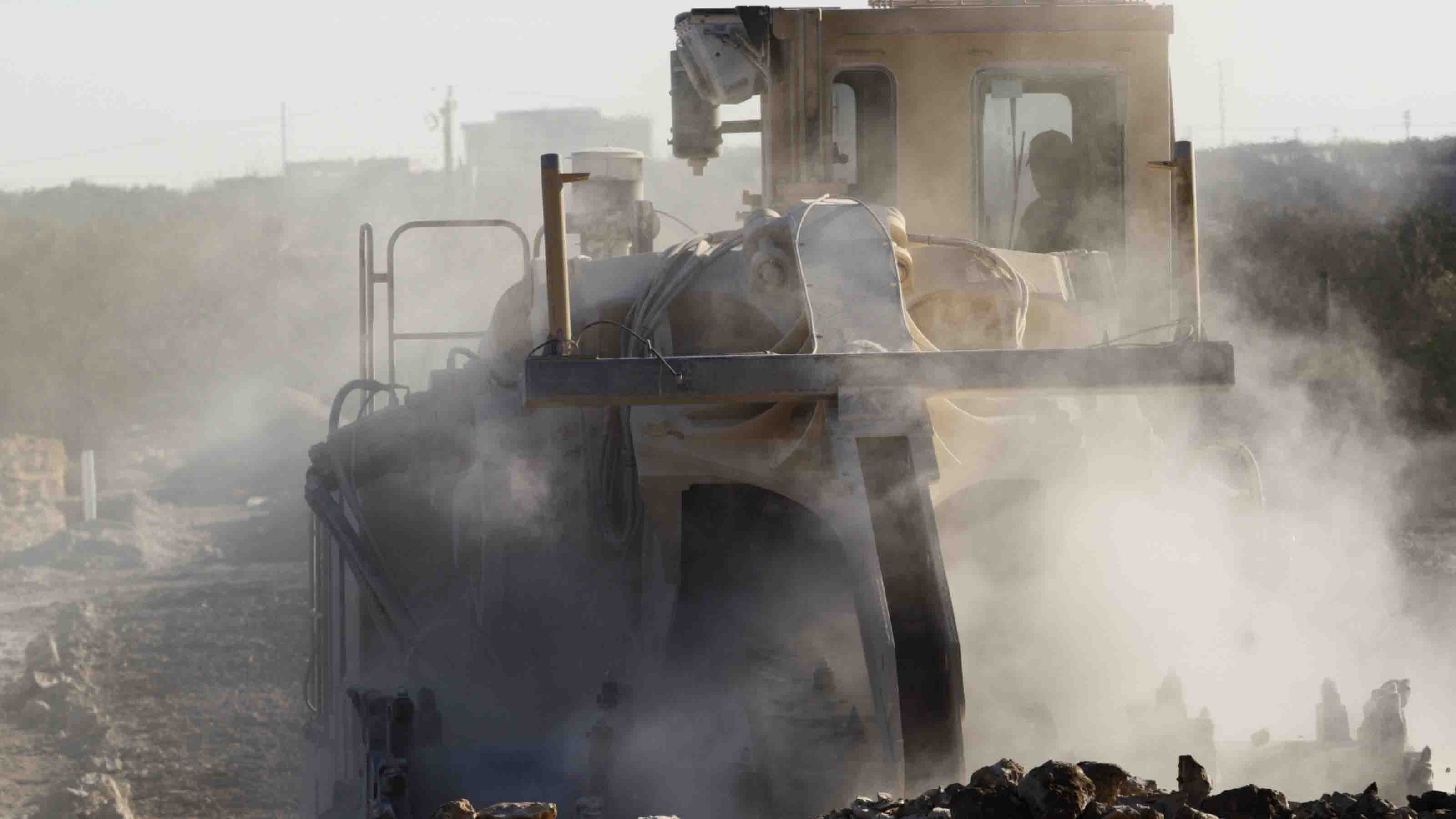8 Risky Jobs That Pay Big Bucks
From professional athletes to police officers, some jobs carry more risks than others. If you don’t mind possible injury or even the possibility of death, here are some dangerous jobs that offer financial compensation for the risks.


Profit and prosper with the best of Kiplinger's advice on investing, taxes, retirement, personal finance and much more. Delivered daily. Enter your email in the box and click Sign Me Up.
You are now subscribed
Your newsletter sign-up was successful
Want to add more newsletters?

Delivered daily
Kiplinger Today
Profit and prosper with the best of Kiplinger's advice on investing, taxes, retirement, personal finance and much more delivered daily. Smart money moves start here.

Sent five days a week
Kiplinger A Step Ahead
Get practical help to make better financial decisions in your everyday life, from spending to savings on top deals.

Delivered daily
Kiplinger Closing Bell
Get today's biggest financial and investing headlines delivered to your inbox every day the U.S. stock market is open.

Sent twice a week
Kiplinger Adviser Intel
Financial pros across the country share best practices and fresh tactics to preserve and grow your wealth.

Delivered weekly
Kiplinger Tax Tips
Trim your federal and state tax bills with practical tax-planning and tax-cutting strategies.

Sent twice a week
Kiplinger Retirement Tips
Your twice-a-week guide to planning and enjoying a financially secure and richly rewarding retirement

Sent bimonthly.
Kiplinger Adviser Angle
Insights for advisers, wealth managers and other financial professionals.

Sent twice a week
Kiplinger Investing Weekly
Your twice-a-week roundup of promising stocks, funds, companies and industries you should consider, ones you should avoid, and why.

Sent weekly for six weeks
Kiplinger Invest for Retirement
Your step-by-step six-part series on how to invest for retirement, from devising a successful strategy to exactly which investments to choose.
Often with dangerous jobs, the pay doesn’t come close to compensating for the risk. In fact, plenty of perilous jobs pay paltry sums compared to other options. Take fishermen and loggers. They can expect median salaries of under $35,000 a year, $23,000 less than the mean for all workers. Yet the fatality rate for fishermen is nearly 39 times the rate for all occupations, the highest of any profession, in fact. Loggers, at nearly 28 times the overall fatality rate, rank second.
The COVID-19 pandemic shook up the risk scenario in the workplace. Overall, workplace injuries and illnesses were down 5.7% in 2020, compared to the previous year. But a closer look at the numbers reveals that while injuries dropped significantly, illnesses went way up.
The pandemic also made a new group of low-paying jobs among the riskiest in the nation. Nursing assistants had the highest number of days of any profession away from work in 2020, the most recent year available, according to the Bureau of Labor Statistics. They had 1,024 days away from work per 10,000 workers in 2020, an increase of 14 times the rate in 2019. Yet nursing assistants make a mean wage of just over $30,000.
Going back the last few years before the pandemic, there were generally between 10,000 and 11,000 respiratory illnesses among U.S. workers each year. In 2020, however, there were nearly 429,000. Conversely, the days away from work decreased slightly for heavy and tractor-trailer truck drivers, whose mean wage was just over $50,000, between 2019 and 2020.
As perilous as work has become for many during the pandemic, fewer people were injured on the job in 2020 than in any year since 2013, according to the most recent data from the Bureau of Labor Statistics. Still, those data showed an American worker died every 111 minutes from a job-related injury. The most common cause of death on the job was transportation-related incidents, which resulted in 1,778 deaths that year, more than 37% of all work-related deaths.
Not surprisingly, workers in jobs that involved transportation and moving material accounted for the biggest proportion of occupational deaths at a total of 2,258, accounting for more than 47% of the total work-related deaths in the U.S.
We believe that if you're going to take a risky job, you should at least get compensated handsomely for it. So we crunched the numbers on injuries, fatalities and salaries to identify eight occupations offering paychecks that make up for the elevated risks by paying more than the national median of about $58,000. Top earners in many of these fields can enjoy six-figure salaries, in some cases even without college degrees. Plus, many of them won’t be replaced by technology, which spells job security.
Take a look at these risky jobs that pay well.
Data sources: All data provided by the U.S. Bureau of Labor Statistics, unless otherwise noted. Most statistics from 2020, unless otherwise indicated. That year, the fatality rate for all occupations was 3.4 deaths per 100,000 workers.. "Top pay" represents the annual salary of a worker in the 90th percentile of an occupation, unless otherwise noted. We used the most updated data provided by BLS. In some instances, that was as far back as 2019 or older. Also, in some instances, the bureau provided median salary information, while for other occupations, it provided average salary information.

Airline Pilot
- Number of workers: 42,770
- Rate of injuries/illnesses: 34.3 (3.4 for all workers).
- This represents a decrease of the 2019 rate of 61.8 per 100,000 FTEs
- Median annual salary: $115,080
- Top pay: $197,400*
- Annual fatalities: 4
Flying may be safer than driving, with crashes exceedingly rare, but pilots still manage to get hurt. The most common injury to pilots is back strain, no doubt exacerbated by countless hours spent in flight decks. Still, the pay might well make the risks worthwhile. Annual median wages for airline pilots, copilots and flight engineers are the highest of all our risky jobs.
You can save yourself the cost of college by heading straight to flight school, though most airlines prefer to hire degree-holders. You'll need the edge. Competition for openings can be fierce, given industry consolidation and the job market's overall weakness. You'll also have to clock the flight hours necessary to even apply for an airline job. The Federal Aviation Administration requires applicants for pilot and first officer positions to have a minimum of 1,500 hours of total flight time.
But if you rack up enough experience and airborne hours, annual pay with the major airlines can soar to $200,000 or more, according to AirlinePilotCentral.com. Similarly plump salaries can be had if you land an offer from one of the flying freight giants. FedEx and UPS pay their captains at least $212,000 and $233,000 a year, respectively, starting in just their second years. Bonus: no whiny passengers.
*According to Airline Pilot Central, United offers its 12th year captains of Boeing 777 planes the highest minimum annual salary of all the legacy airlines.

Private Detective
- Number of workers: 33,700
- Rate of injuries/illnesses: 122.6 per 10,000 workers
- Median workdays missed due to injury/illness: 43
- Mean annual salary: $60,970
- Top pay: $98,070
- Annual fatalities: 1
Digging up information can be pretty strenuous work. Gumshoes sustain most of their injuries in car accidents and physical altercations. But even those tallies are relatively low, so the above-average pay for private eyes may be worth the slightly elevated risk.
Most detective work does not have an education requirement, but the ability to learn on the job is a must, and previous related work experience is a plus. You'll also need a license in most states; requirements vary. And if you specialize in certain fields, say insurance fraud or computer forensics, a related bachelor's degree might be necessary for some corporate investigators.
That expertise can not only help you solve whodunits but also push up your pay. Investigative agencies, both large and small, are by far the biggest employers of detectives. Distant runner-ups are law firms and state and local governments.

Registered Nurse
- Number of workers: 3 million
- Rate of injuries/illnesses: 1023.8 per 10,000 workers
- Median workdays missed due to injury/illness: 8
- Median annual salary: $75,330
- Top pay: $103,000
- Annual fatalities: 12
Registered nurses were among those most affected by COVID; they endured a whopping 78,740 injuries and illnesses in 2020, an increase of more than 290% over 2019 when there were 20,150 injuries and illnesses among registered nurses, according to the Bureau of Labor Statistics. In 2020, the number of cases in which registered nurses had days away from work increased by 58,590 cases (290.8 percent) to 78,740 cases, according to the Bureau of Labor Statistics.
The states with the largest increase in cases among nurses who had days away from work were Michigan, where cases rose more than 1,000% and Iowa, which had an increase of more than 900%. .
Typical wages about 88% above the national median might help compensate for the pain. California registered nurses earn a particularly comfortable wage, into six figures in nine West Coast metro areas.
You need a bachelor's or associate's degree in nursing or a diploma from an accredited nursing program in order to become an RN. If you extend your education to a master's degree, you can earn even more; median annual pay for nurse practitioners is nearly $90,000, and top earners make $120,500 a year.
According to Indeed.com, the average base salary for a registered nurse is nearly $89,000 as of May 2022. That ranges from $80,266 for nurses with less than a year of experience to $104,907 for those with more than 10 years of experience. New York is the highest paying city where registered nurses earn an average of nearly $103,000 a year. But Iindeed says just 62% of registered nurses in the U.S. think their salaries are enough for the cost of living in their area.

Professional Athlete
- Number of workers: 16,700
- Rate of injuries/illnesses: 1,542.1 per 10,000 workers
- Median workdays missed due to injury/illness: 10
- Median annual salary: $77,300
- Top pay: $107.5 million
- Annual fatalities: 10
When your job is to exercise and physically compete on a regular basis, your body is bound to get a little run down. More than half of the injuries reported by athletes are sprains, strains and tears. But what's becoming a little worse for wear when you get to play the game you love for a living?
The above-average pay doesn't hurt, either. It would behoove players to save that extra income. Athletic careers offer little stability and are often short-lived. According to Indeed.com, the average professional athlete base salary as of April 20222 was $115,429, including $222,275 for the NFL. The highest paying city for professional athletes was New York, where the average salary is $133,762.
According to the job website Ladders, the top-paid American athlete is Dallas Cowboys quarterback Dak Prescott who earns a jaw-dropping $107.5 million a year.
But just 45% of professional athletes in the U.S. report being satisfied that their salaries are enough for the cost of living in their area.

Police Officer
- Number of workers: 665,000
- Rate of injuries/illnesses: 121.7 per 10,000 workers
- Median workdays missed due to injury/illness: 15
- Median annual salary: $64,610
- Top pay: $102,530
- Annual fatalities: 105
Police work is truly risky business. Exhibit A: The number of work-related deaths for cops is the greatest of all the occupations on this list. Still, the fatality rate is just 18.6 per 100,000 workers, about on par with taxi drivers.
If you don't mind mixing it up with the occasional physical altercation or high-speed chase, paychecks 59% higher than the national median may be worth sustaining some sprains, strains and tears (the most common injuries for police officers). You can enter the police academy after graduating from high school or getting your GED, though many agencies require some college coursework or a college degree. But you have to be at least 21 years old to become an officer (younger recruits can be cadets and do clerical work until they're of age). A college degree can help fatten your paycheck, however. A B.A. in criminal justice can push salaries into six figures, according to Payscale.
Indeed.com reports the average base salary for a U.S. police officer is $55,390. This ranges from $46,900 for officers with less than a year of experience to $76,650 for those with more than ten years of experience. The highest paying city is San Jose, California, where officers make an average of $131,000. According to Indeed, 53% of police officers report being satisfied that their salaries are enough for the cost of living in their area.
Note that while the Bureau of Labor Statistics data for wages for police officers refer to 2021, the most currently available injury and illness information dates to 2018.

Railroad Conductor/Yardmaster
- Number of workers: 48,030
- Rate of injuries/illnesses: 180 per 10,000 workers
- Median workdays missed due to injury/illness: 22
- Median annual salary: $63,960
- Top pay: $82,460
- Annual fatalities: 11 in 2019
Train-track tragedies are as uncommon as they are heartbreaking. Overall, railroad safety has improved dramatically over the past decade. Heading the crews of freight and passenger trains and rail yards, railroad conductors and yardmasters have the highest rates of injury of all rail transportation workers, but they have the potential to score the biggest paychecks, too. You need just a high school diploma or the equivalent to get started, and you have to be certified by the Federal Railroad Administration to become a conductor. Most employers require one to three months of on-the-job training. Amtrak and some freight companies offer their own training programs, while smaller railroads may send you to a central facility or community college to prep you for the job.

Mining Machine Operator
- Number of workers: 14,740
- Rate of injuries/illnesses: 248.0 per 10,000 workers
- Median workdays missed due to injury/illness: 23 for surface mining, 46 for underground and 60 for continuous Median annual salary: $60,300
- Top pay: $78,060
- Annual fatalities: 5 for surface mining, 7 for underground
Not surprisingly, pumping the Earth for its resources can really suck the life out of you. Extraction workers, a broad category of workers who mine and drill for oil, gas, coal and the like, recorded a total of 92 deaths and 3,990 injuries in 2011. And while some extraction jobs offer scant compensation for such risks, pay for certain mining machine operators is more tempting.
Education requirements are minimal to get started (some jobs don't even require a high school diploma). But if you go into mining with a college degree, you stand to earn a fatter paycheck and added safety as a mining engineer. Indeed says mining engineers, who inspect mining areas and design underground systems of entries, exits and tunnels, make an average national salary of more than $97,000 as of April 2022. Their job is also dangerous as they are often close to heavy machinery and are exposed to air pollution and in danger of being hurt in a cave-in.

Electrician
- Number of workers: 729,600 in 2020
- Rate of injuries/illnesses: 122.2 per 10,000 workers
- Median workdays missed due to injury/illness: 15
- Median annual salary: $60,040
- Top pay: $82,930
- Annual fatalities: 68 in 2019
With high demand to plug in our various devices at home and work, electricians are practically guaranteed prosperous careers.
But this profession comes with its stumbling blocks — literally. Electricians' injuries are most often caused by falls. That's not surprising, considering they often spend lots of time at construction sites and on ladders. If you watch your step, you typically stand to enjoy paychecks 43% higher than the national median.
You can start your career as an electrician with a high school diploma (or the equivalent) and a paid four-year apprenticeship, which you can find through the U.S. Department of Labor. But having a Bachelor's degree can help boost your income; according to Payscale, a college-educated electrician can earn up to about $93,000 a year. Most states also require you to be licensed.
According to Indeed.com, the average base salary for an electrician is about $56,800 as of May 2022.
Profit and prosper with the best of Kiplinger's advice on investing, taxes, retirement, personal finance and much more. Delivered daily. Enter your email in the box and click Sign Me Up.

Rapacon joined Kiplinger in October 2007 as a reporter with Kiplinger's Personal Finance magazine and became an online editor for Kiplinger.com in June 2010. She previously served as editor of the "Starting Out" column, focusing on personal finance advice for people in their twenties and thirties.
Before joining Kiplinger, Rapacon worked as a senior research associate at b2b publishing house Judy Diamond Associates. She holds a B.A. degree in English from the George Washington University.
-
 Quiz: Do You Know How to Avoid the "Medigap Trap?"
Quiz: Do You Know How to Avoid the "Medigap Trap?"Quiz Test your basic knowledge of the "Medigap Trap" in our quick quiz.
-
 5 Top Tax-Efficient Mutual Funds for Smarter Investing
5 Top Tax-Efficient Mutual Funds for Smarter InvestingMutual funds are many things, but "tax-friendly" usually isn't one of them. These are the exceptions.
-
 AI Sparks Existential Crisis for Software Stocks
AI Sparks Existential Crisis for Software StocksThe Kiplinger Letter Fears that SaaS subscription software could be rendered obsolete by artificial intelligence make investors jittery.
-
 What to Do With Your Tax Refund: 6 Ways to Bring Growth
What to Do With Your Tax Refund: 6 Ways to Bring GrowthUse your 2024 tax refund to boost short-term or long-term financial goals by putting it in one of these six places.
-
 What Does Medicare Not Cover? Eight Things You Should Know
What Does Medicare Not Cover? Eight Things You Should KnowMedicare Part A and Part B leave gaps in your healthcare coverage. But Medicare Advantage has problems, too.
-
 15 Reasons You'll Regret an RV in Retirement
15 Reasons You'll Regret an RV in RetirementMaking Your Money Last Here's why you might regret an RV in retirement. RV-savvy retirees talk about the downsides of spending retirement in a motorhome, travel trailer, fifth wheel, or other recreational vehicle.
-
 The Six Best Places to Retire in New England
The Six Best Places to Retire in New Englandplaces to live Thinking about a move to New England for retirement? Here are the best places to land for quality of life, affordability and other criteria.
-
 The 10 Cheapest Countries to Visit
The 10 Cheapest Countries to VisitWe find the 10 cheapest countries to visit around the world. Forget inflation and set your sights on your next vacation.
-
 15 Ways to Prepare Your Home for Winter
15 Ways to Prepare Your Home for Winterhome There are many ways to prepare your home for winter, which will help keep you safe and warm and save on housing and utility costs.
-
 Six Steps to Get Lower Car Insurance Rates
Six Steps to Get Lower Car Insurance Ratesinsurance Shopping around for auto insurance may not be your idea of fun, but comparing prices for a new policy every few years — or even more often — can pay off big.
-
 How to Increase Credit Scores — Fast
How to Increase Credit Scores — FastHow to increase credit scores quickly, starting with paying down your credit card debt.
